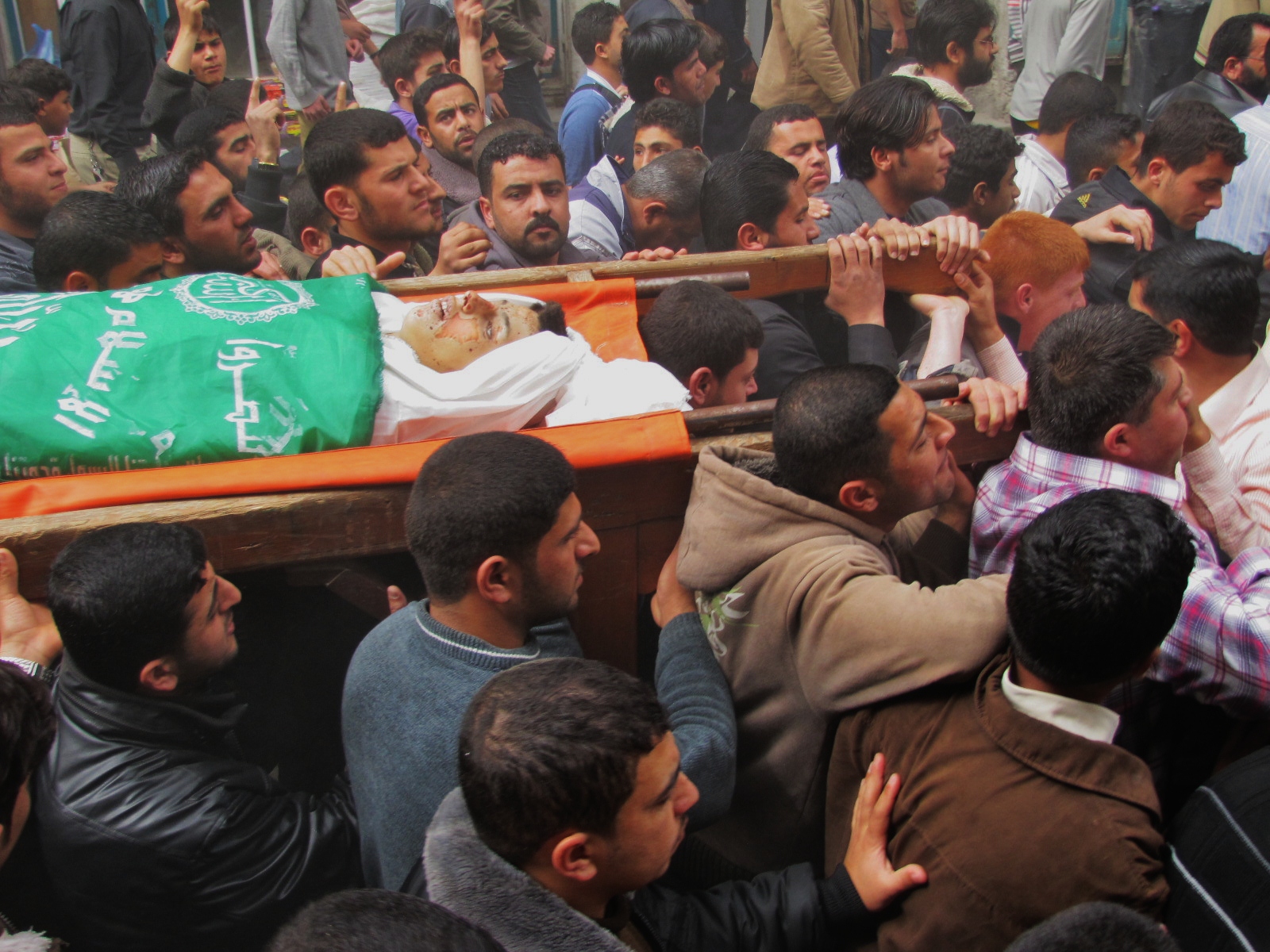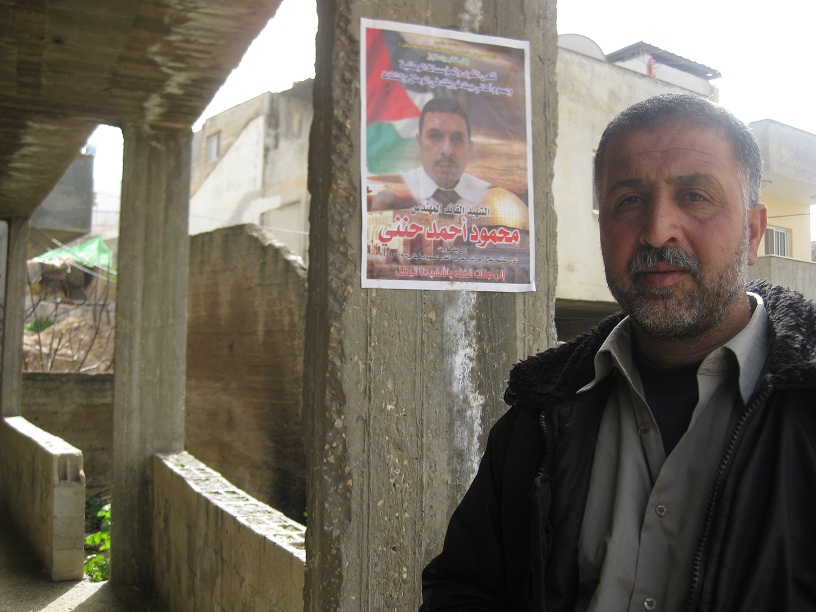Category: Journals
-
Beit Dajan gears up for continued resistance
by Robin 15 March 2012 | International Solidarity Movement, West Bank On the 14th of March 2012 two internationals from ISM went to Beit Dajan to talk about the recent upstart of demonstrations in the village. We met with Naser Abu Jaish who is the administrative manager in the municipality. Beit Dajan is a village…
-
The mourning tent of a martyr
by Nathan Stuckey 14 March 2012 | International Solidarity Movement, Gaza Strip Nayif Qarmout was murdered yesterday; he was also buried yesterday, in a small cemetery in the heart of Jabalia, the refugee camp where he lived. He was only 14 years old. He was murdered by an Israeli missile while playing football with his…
-
Beit Furik, Nablus: Family unable to attend funeral for son killed in recent Gaza air strikes
by Jonas Weber 13 March 2012 | International Solidarity Movement, West Bank “We called him Nassr, but I think his real name was Mahmoud,” says Ahmed while we were on the bus from the Beit Furik municipality building. Outside the bus window, the walls of the little town just outside of Nablus are plastered with…


